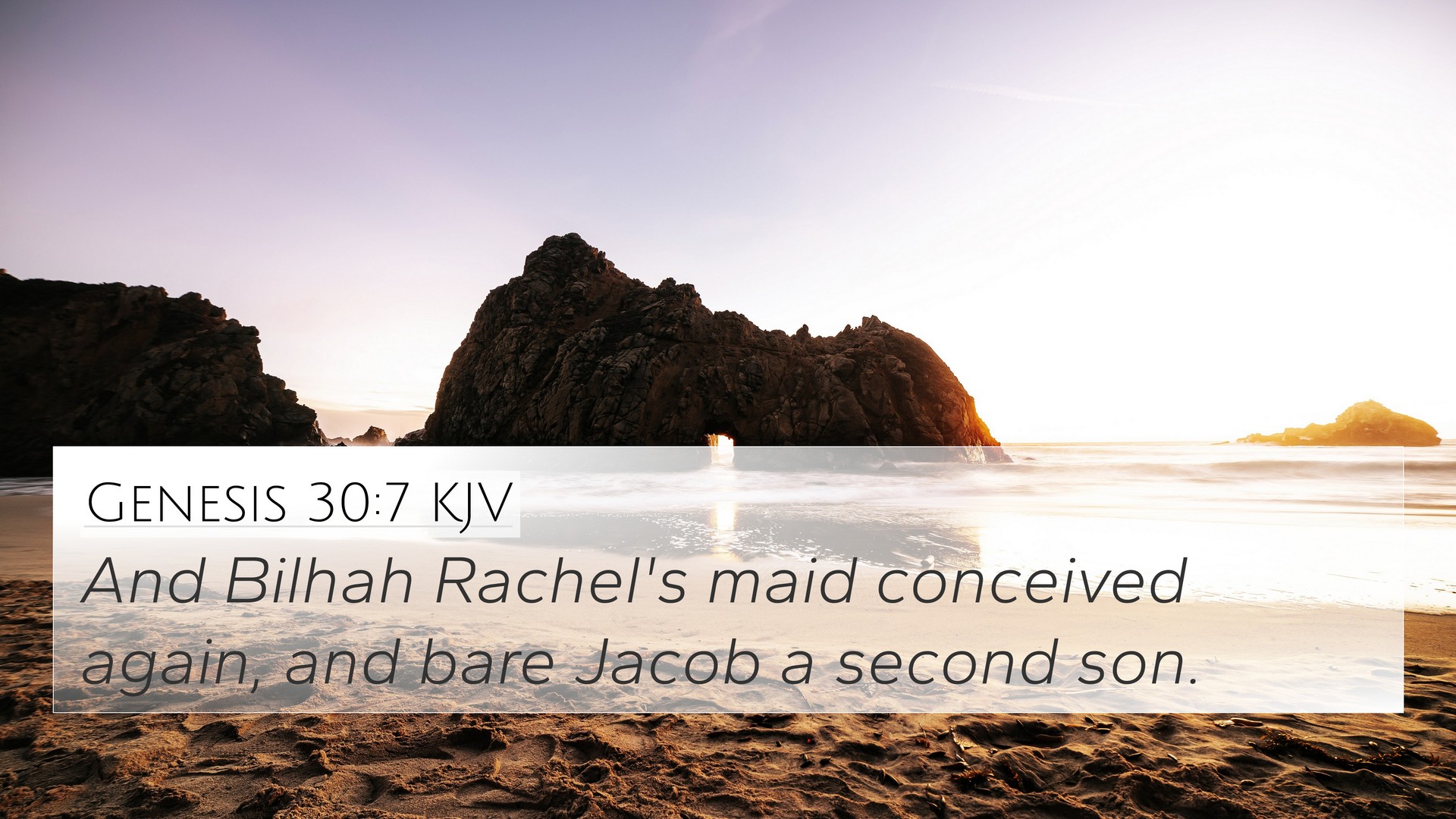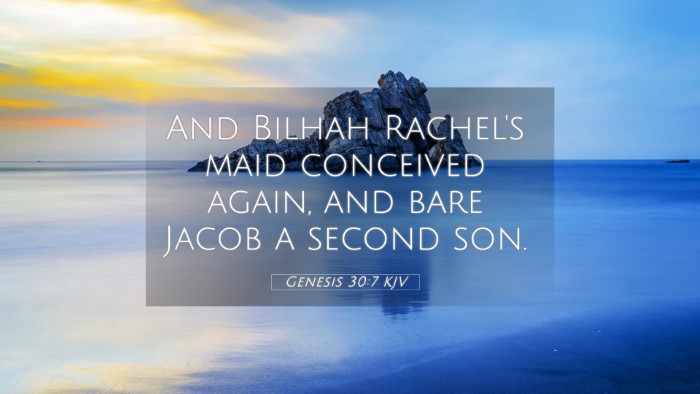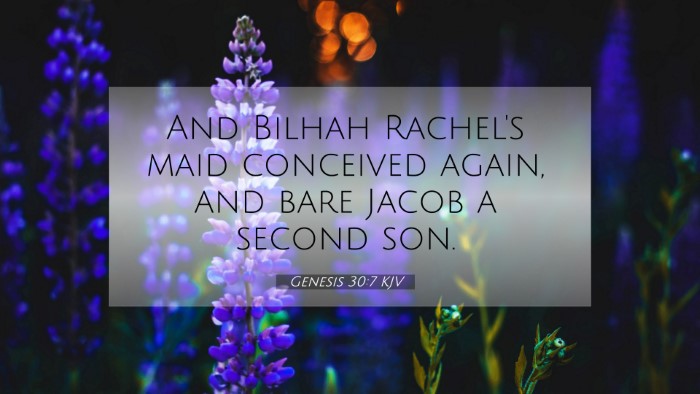Understanding Genesis 30:7
Genesis 30:7 states: "And Bilhah conceived, and bore Jacob a second son." This verse is a pivotal moment in the narrative of Jacob and his family, particularly in the context of the rivalry between Rachel and Leah, as well as the use of their handmaids to bear children.
Summary of Meaning
This verse describes Bilhah, Rachel's maid, giving birth to a son for Jacob. In the cultural context of the time, childbearing was often seen as a reflection of a woman’s value. Rachel, who was initially barren, offers Bilhah to Jacob to bear children on her behalf, reflecting the deep societal pressures surrounding fertility and lineage.
Commentary Insights
-
Matthew Henry:
Henry highlights the significance of this birth within the family dynamics of Jacob. He points out that Rachel's jealousy and competition with Leah led her to use Bilhah as a surrogate, demonstrating the lengths to which she would go to gain favor and ensure her place in Jacob's affections. This act set the stage for further familial strife.
-
Albert Barnes:
Barnes notes that this verse illustrates the themes of desperation and cultural expectations of the time. He emphasizes that Rachel’s actions reflect a common practice among the people of that era as they sought to ensure descendants. This action also reveals the complex social structures that early biblical figures navigated.
-
Adam Clarke:
Clarke discusses the implications of Bilhah's role in this narrative. He suggests that her status as a concubine highlights both her lower social standing and the intricate family relationships within Jacob's household. Bilhah's children were linked to Rachel, which complicates the inheritance lines and tribal affiliations.
Bible Cross-References
To deepen our understanding of Genesis 30:7, we can explore several Bible verses that relate to its themes and context:
- Genesis 30:3: Rachel’s offer of Bilhah to Jacob as a means to bear children.
- Genesis 29:31: The Lord's acknowledgment of Leah's plight and the subsequent blessing of her children.
- Genesis 30:8: The birth of Dan, illustrating Rachel's struggle and the naming significance.
- Genesis 35:25: The mention of the sons of Bilhah, reinforcing their importance in Jacob’s lineage.
- Genesis 48:5: Jacob acknowledging the sons of Joseph and their place in his heritage.
- Genesis 29:32: Leah’s response to being unloved and her subsequent births to Jacob.
- Genesis 49:1-2: Jacob’s prophetic blessings over his sons, touching on the roles of Bilhah's children.
- Exodus 1:5: The growth of the Israelites, illustrating the importance of lineage.
- 1 Chronicles 2:1-2: The genealogies that include tribal connections and lineage significance.
Thematic Connections
The narrative of Genesis 30:7 can be linked to broader themes within scripture, highlighting the human experience of jealousy, societal pressures, and the quest for acceptance through childbearing:
-
Jealousy and Competition: The rivalry between Rachel and Leah continues to unfold throughout Genesis, leading to deeper insights into human emotions and relationships.
-
Faith and Divine Providence: The mention of God’s actions and favor throughout these narratives indicates God's sovereignty amidst human schemes.
-
Identity through Family: The struggle for identity through lineage in Israel's history highlights the importance of familial bonds in biblical themes.
Comparative Bible Verse Analysis
When analyzing Genesis 30:7 in relation to other verses, we find that the act of using handmaids reflects traditions that carried into later texts, portraying how societal norms shaped family dynamics. This connection affirms the need for comprehensive biblical cross-referencing methods to fully grasp the intricate relationships and lessons of scripture.
Conclusion
Genesis 30:7 serves not only as a simple account of childbirth but as a profound commentary on human relationships, cultural expectations, and the ongoing narrative of God's chosen people. Utilizing tools for cross-referencing, such as a Bible concordance or a Bible reference guide, enables deeper understanding of these connections and enriches our study of scripture.


